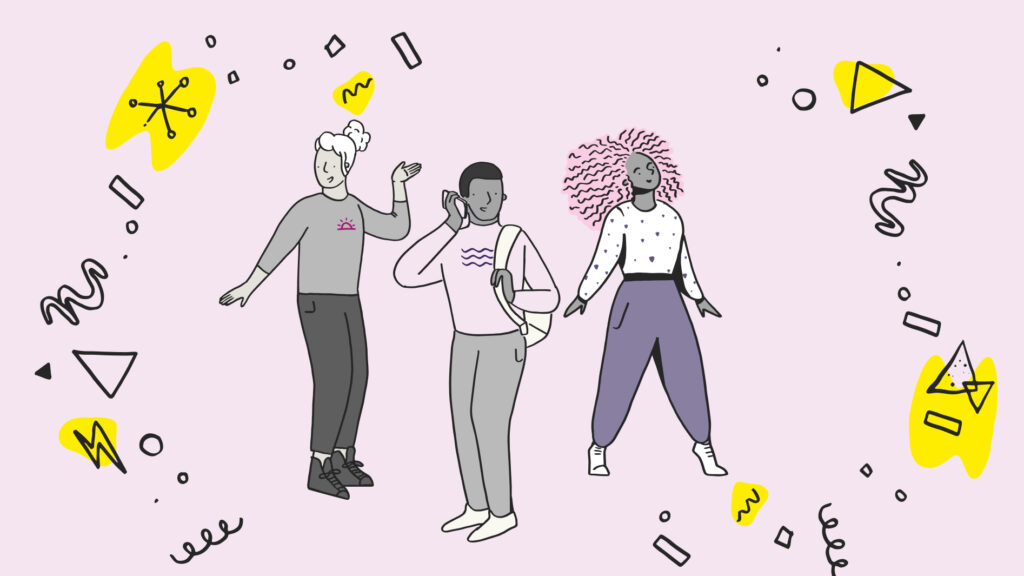We occasionally receive UX briefs requesting focus groups as a technique for researching and evaluating all sorts of UX-related questions. But, in common with many others, we believe that focus groups are not a valid method for use within UX (see, for example “why focus groups don’t work” by Gerry McGovern). Focus groups are not part of our repertoire and haven’t been for quite some time. Why is that?
What is a focus group…
Focus groups were formalised as a social research technique in the 1970s by American Sociologist Robert K. Merton. They are a qualitative research technique in which small groups of people are asked to discuss their opinions, ideas, thoughts or perceptions of a product. The discussion topics are usually pre-determined and are moderated by a researcher who attempts to draw out and balance viewpoints from each participant.

Why do people like them?
Focus groups have a reputation as a forum for generating ideas and innovative thinking. The theory is that listening to other people’s thoughts and insights triggers fresh ideas. Hence the fact that focus groups are often used within the UX industry to generate ideas for possible new products or services (such as websites or apps).
Focus groups are also believed to provide insight into opinions and a direct line to the voice of the consumer. They are therefore often used to validate concepts and ideas before taking them into development. In the UX industry this means using focus groups to gather feedback and responses to a new design or prototype or even to choose between design routes.
Do focus groups work?
In a word: no!
It’s widely estimated that 80% of new products fail. This is despite the fact that many of these new products performed well in focus group research and should have been a roaring success. There are many famous examples of failed products and ideas that have come out of focus group research, not least numerous Hollywood films, New Coke and even fridges in first class on airplanes that were stocked with salad and healthy snacks that didn’t get eaten.
What are the reasons why they don’t work?
There are many reasons, but among the main factors contributing to the ineffectiveness of focus groups are:
- Peer pressure is complex – people may try to give answers to gain approval from the others in the group. Again, this is often unconscious rather than deliberate. It can be a case of following the herd instinct – if everyone else in a group voices a particular opinion, then an individual is likely to fall in with that, even if they disagree. Or it can be a case of trying to project an image that you think the others in the group expect you have (remember those salads – who wants to be the one person saying that they’d prefer chocolate?);
- Lack of time – in a typical focus group, each participant may get to speak for 10-15 minutes on average. Given the huge complexity of the factors that influence our behaviour (many of which are unconscious and difficult to articulate), it is unlikely that 10 minutes will be enough to develop a good understanding of that individual’s motivations.
There are also the standard issues associated with any form of lab-based testing, including:
- The unnatural setting – discussing your thoughts with a group of strangers, moderated by another stranger, is not the best way to uncover truthful opinions or feedback. How long does it take to build up trust with another individual so that you feel you can speak honestly? How much longer will that take in a group setting? It is unlikely that even the best moderator will be able to establish this level of trust within a one hour focus group;
- Participants lie, albeit unintentionally – they may think they’re telling the truth but what they say and what they then actually do are often very different. With the best intentions, participants may say they’d behave in a certain way, but in reality with all the factors they hadn’t thought about, their behaviour could be very different. Remember those airplane fridges stocked with salads that didn’t get eaten? Well, people like to think the best of themselves and, knowing that they need to eat healthily, will say that they want a salad. In actual fact, in the middle of the night on a long flight, when they reach for the fridge they’re really looking for some comfort-giving chocolate.
Unless you’re researching something that will be used in a group setting with strangers, then focus groups really don’t work.
So, what should you do instead?
As an alternative to focus groups then, depending on the research goals, we’d suggest either usability testing, a series of in-depth individual interviews or more ethnographically focussed research, such as an observational study. These techniques all provide a more rounded and honest view of each person’s thoughts, opinions, reactions and behaviours.
—
UX Research is at the very heart of what we do and a key component in any design and build work we deliver. Getting the research right at the start of your project will ensure that your project will run smoothly and meet the needs of your customers.
If you would like to speak to us about how we can help you with your UX research then please do not hesitate to give us a call 44 (0) 117 929 7333 or submit our contact form. in the meantime take a look at how our UX research services could help you.
We drive commercial value for our clients by creating experiences that engage and delight the people they touch.
Email us:
hello@nomensa.com
Call us:
+44 (0) 117 929 7333




